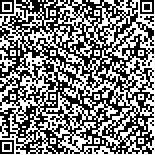本文已被:浏览 804次 下载 485次
Received:November 27, 2019 Published Online:September 20, 2020
Received:November 27, 2019 Published Online:September 20, 2020
中文摘要: 目的 探讨Kirsten大鼠肉瘤病毒癌基因同源物(KRAS)基因突变对骨关节肿瘤大鼠蛋白激酶信号途径的影响。方法 对健康雄性SD大鼠24只(对照组)与实验动物中心提供的KRAS突变雄性SD大鼠24只(突变组),采用骨肉瘤细胞大鼠骨髓腔注射的方法建立骨关节肿瘤大鼠模型;在造模后4周与8周检测蛋白激酶信号途径的重要因子—Toll样受体4(TLR4)、蛋白激酶B(Akt)的mRNA与蛋白在滑膜组织中的表达,及炎症因子(IL-6、TNF-α)的血清水平。结果 突变组造模后4周与8周的血清IL-6、TNF-α水平显著高于对照组(P<0.01)。对照组大鼠膝关节内皮细胞层完整,以平滑肌细胞和弹力纤维为主,内弹力板连续规整,无增殖及脂质沉积;突变组大鼠膝关节表现为内膜增厚、部分管腔闭塞,有大量空泡细胞、脂质沉积。突变组造模后4周、8周的滑膜组织TLR4、Akt mRNA与蛋白相对表达水平显著高于对照组(P<0.05,P<0.01)。结论 KRAS突变可能通过激活骨关节肿瘤大鼠蛋白激酶信号途径的重要因子TLR4与Akt在转录与翻译水平的表达,从而促进炎症因子的释放,恶化骨关节肿瘤的病情。
中文关键词: 基因突变 Kirsten大鼠肉瘤病毒癌基因同源物基因 骨关节肿瘤 蛋白激酶信号通路 炎症因子
Abstract:Objective To investigate the influences of Kirsten rat sarcoma viral oncogene homolog (KRAS) gene mutation on protein kinase signaling pathway in bone and joint tumor of rats. Methods Rat bone and joint tumor models were established by injecting osteosarcoma cells into bone marrow cavity in 24 healthy male SD rats (control group) and 24 KRAS- mutant male SD rats (mutation group).The expression of Toll like receptor 4 (TLR4) signaling pathway, the expressions of mRNA and protein of protein kinase B (Akt) in synovial tissue and the serum levels of IL-6 and TNF-α were detected at 4 and 8 weeks after modeling. Results The serum IL-6 and TNF-α levels in mutation group were significantly higher than those in control group at 4 and 8 weeks after model establishment (all P<0.01).In control group, the endothelial cells of the knee joint were intact, mainly composed of smooth muscle cells and elastic fibers, and the internal force plate were continuously regularized without proliferation and lipid deposition.However, in mutation group, thickening of intima, partial occlusion of lumen, a large number of vacuolar cells and lipid deposition presented in the knee joint.The relative expression levels of TLR4 and Akt mRNA and protein in synovial tissue in mutation group were significantly higher than those in control group (P<0.05, P<0.01). Conclusion KRAS mutation may activate the expressions of TLR4 and Akt of protein kinase signaling pathway , thus promoting the release of inflammatory factors and aggravating the condition of bone and joint tumors in rats.
keywords: Gene mutation Kirsten rat sarcoma viral oncogene homolog Bone and joint tumor Osteoarthritis Protein kinase signaling pathway Inflammatory factor
文章编号: 中图分类号: 文献标志码:A
基金项目:十堰市科学技术研究与开发项目(14Y50)
引用文本:
